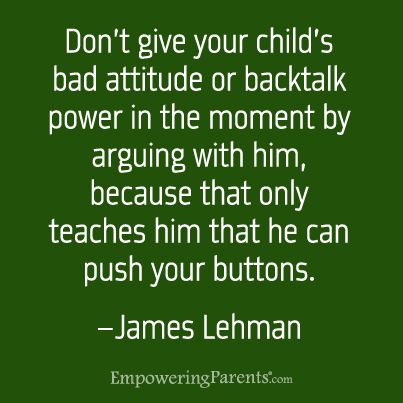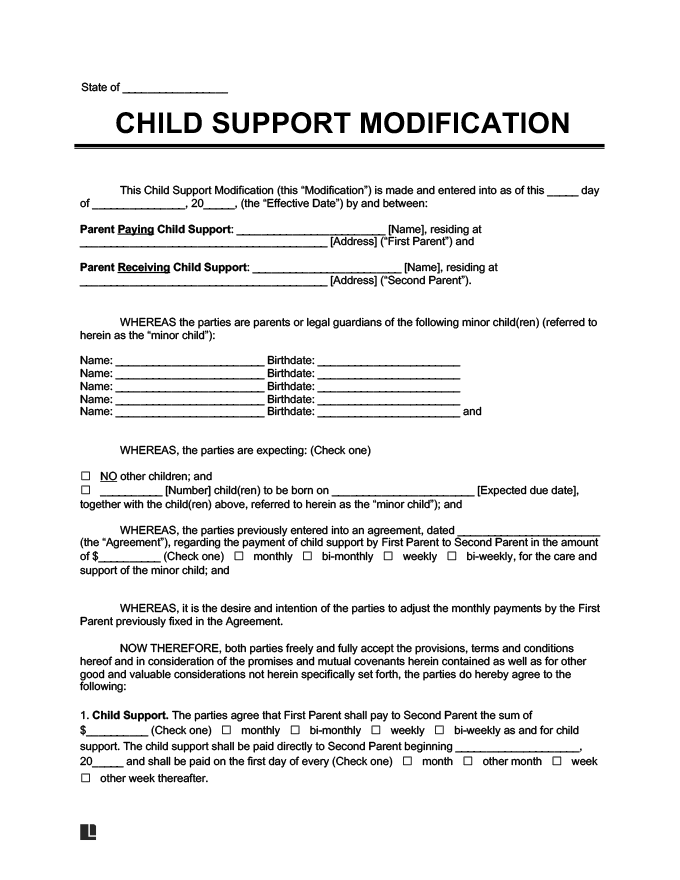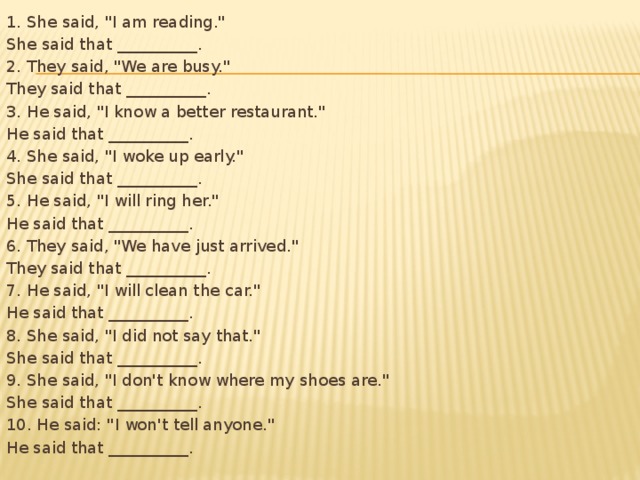How to help child with bad attitude
6 Ways to Adjust Your Kid's Attitude without Losing Your Mind
A friend of mine decided to coach his son’s basketball team for the first time this past year. He made the effort of planning practice drills that were both fun and helped the players develop fundamentals. During the first practice while doing some of those drills his son started to whine and complain, eventually asking if they could do something else instead. As you can imagine, my friend was frustrated by his son’s attitude, especially since his son’s attitude affected the attitude of the entire team.
A child with a negative, complaining attitude can wear down even the best dads. Authors Scott Turansky and Joanne Miller offer some hope for parents trying to stop the complaining in their book, Good and Angry. Here are 6 practical ways to help give your kids an attitude adjustment without losing your mind:
1. Identify Emotions.
Help your child self-express via identifying feelings and choosing words carefully when frustrated or making demands. “It’s okay to tell me how you feel, but you need to speak respectfully. Even if you’re tired or upset, try to stay calm.”
2. Identify Influences.
Try to identify where some of your child’s bad attitudes come from. One dad noticed his son’s frustration worsened after playing video games. Perhaps your child is mimicking the behavior of someone else—a parent, sibling, friend, or even TV character—who complains or criticizes.
3. Point Out Attitudes.
“Identify a thinking error that needs to change. You can offer the insight of an objective outsider.” For example, if your child had a bad day and takes it out on his brother, he may need help in how to properly handle his emotions. Target more than the behavior; look deeper to see what’s causing the trouble.
Target more than the behavior; look deeper to see what’s causing the trouble.
4. Challenge Attitudes.
If your child is complaining about doing his chores or homework, offer motivation to change his attitude.
Dad: Son, how’s your homework coming?
Son: It stinks. Why do I have to do it anyway?
Dad: You can do it! Try working hard for the next hour, then take a break. We’ll get ice cream together.
The real reward of accomplishing something will be what motivates a change in attitude.
5. Teach Responses.
Rather than wait for your child to stop whining or complaining, actually role-play appropriate responses. Then, immediately, reinforce the correct response with some kind of encouragement.
6. Affirm Progress.
When you notice your child making improvements, praise him and let him know you’re proud. Even if you’re tempted, skip comments such as, “It’s about time!” Instead, encourage him in his progress and keep the focus positive.
Turansky and Miller summarize dealing with a complaining child with this: “Attitudes are windows into a child’s heart. If you help your children learn to adjust attitudes, they will have the skills necessary to develop healthy perspectives about life’s challenges and struggles as they get older. ”
”
Used with permission from the book Good and Angry: Exchanging Frustration for Character…in You and Your Kids! by Scott Turansky and Joanne Miller.
Kid got a bad attitude? Here’s how to change it
Today in "Parenting Weekends" we continue a series of excerpts from “Laying Down the Law: The 25 Laws of Parenting to Keep Your Kids on Track, Out of Trouble, and (Pretty Much) Under Control,” the most recent book by TODAY show contributor Dr. Ruth Peters.
Law #5: Connect Consequences to Behavior
I guarantee you can get better behavior from your child. But there is only one way to do it. You must make it perfectly, unmistakably, absolutely clear that what he does will determine what happens to him. No amount of nudging, cajoling, or, worst of all, threatening, will do a lick of good until you connect consequences to his behavior.
Angry Child; Shutterstock ID 174196007; PO: toddler-tantrum-entitlement-stock-today-tease-150915; Client: TODAY DigitalShutterstockPsychologists have long struggled with the chicken-and-egg concept of what comes first — attitudinal or behavioral change.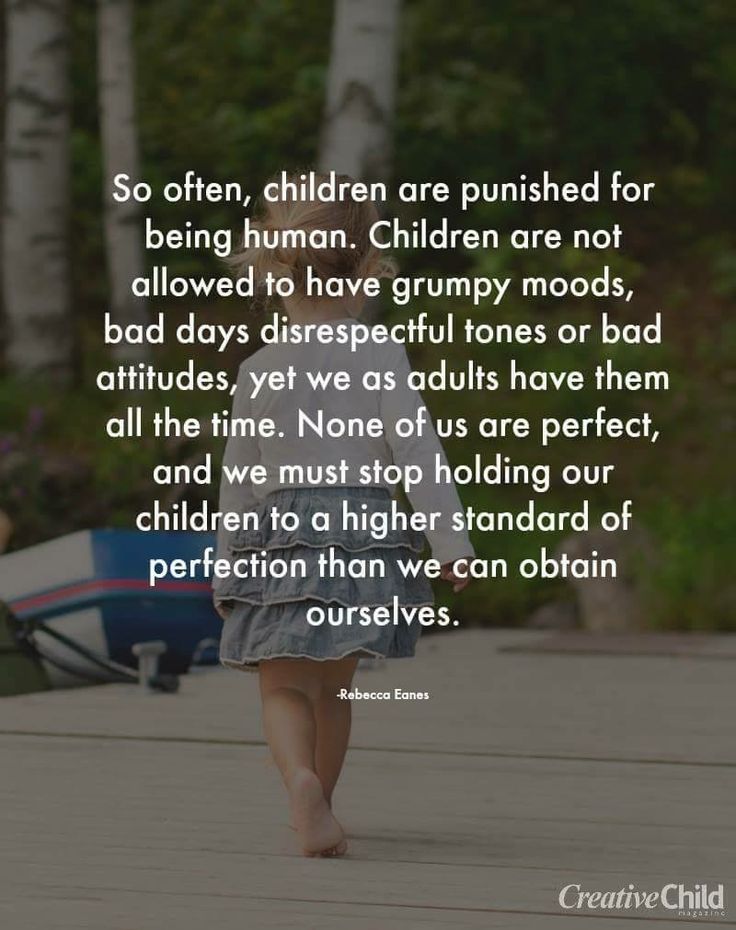 One group believes that folks must adjust their perceptions or feelings before they will change their actions. The other camp campaigns for motivating behavioral change first, with changes in desires, perceptions and feelings following.
One group believes that folks must adjust their perceptions or feelings before they will change their actions. The other camp campaigns for motivating behavioral change first, with changes in desires, perceptions and feelings following.
As a behavioral psychologist I am a dyed-in-the-wool member of the latter camp. I strongly believe that changing a person’s actions leads to changes in thoughts and attitudes. For example, using good study skill behaviors leads to homework completion and good grades, as well as increased knowledge in the subject. When a child is well prepared for class, it is a more enjoyable and interesting experience. Usually that results in greater class participation, even higher grades, and a heightened academic self-confidence. This in turn develops into feelings of mastery of the subject and increased interest. Voila! — a change that began as study skill behavior has resulted in the attitudinal advantage of interest and enjoyment.
I’ve found that the effective use of consequences and teaching what I call the “behavior-consequence connection” are the most efficient ways of gaining better behavior as well as genuine changes in kid attitude.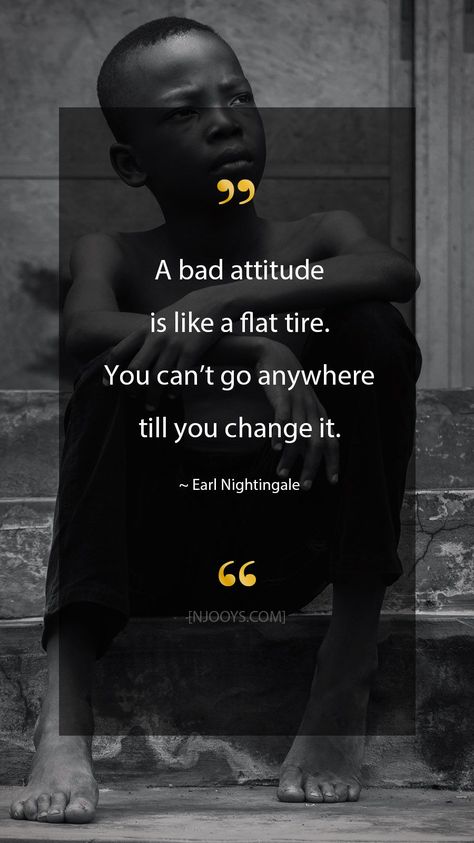 In this law and the two that follow, you’ll learn the simple but effective parenting tactics that make changes fast and make changes that last.
In this law and the two that follow, you’ll learn the simple but effective parenting tactics that make changes fast and make changes that last.
RELATED: Will your kids be naughty or nice? Tips for better behavior during the holidays
Okay, let’s try some old sayings on for size. How about, “What goes around comes around,” “You get what you pay for,” “You reap what you sow.” All of these mean the same thing — that what you do (your behavior) determines what will happen to you (the consequence). That, in a nutshell, is the essence of the behavior-consequence connection. Try as we may to be new and innovative, those old sayings still fit. We simply cannot avoid this inevitability of human nature.
Young Mother overwhelmed by her kids; Shutterstock ID 180987161; PO: today.comShutterstockI truly believe that good things come to good people, that those who persevere and persist achieve their reasonable goals and that slackers end up bitter and resentful. Sure, some folks sneak by and get away with cheating once in a while or run a red light and avoid a ticket, but in the long run it all catches up with you. As parents, we must teach our kids that they are the masters of their destiny. Blaming others for defeats or failures is a waste of time, energy, and self-pride. Most of all, we need our children to take responsibility for their behaviors on a daily, weekly, and long-term basis.
As parents, we must teach our kids that they are the masters of their destiny. Blaming others for defeats or failures is a waste of time, energy, and self-pride. Most of all, we need our children to take responsibility for their behaviors on a daily, weekly, and long-term basis.
Kids Learn Fast
Let’s take a look at how this learning occurs with your child. She wasn’t born with the knowledge of repercussions of behavior, but the training begins almost immediately following birth. Within a few hours your beautiful newborn started getting the hint that if she cried, she would be cuddled or fed. As a toddler she caught on pretty quickly to the idea that holding on to a table top or your hand would help keep her steady as she learned to walk. After a little more practice, she probably felt confident enough to start cruising around on her own.
As she gets older the learning continues to grow in complexity. In preschool she won’t innately know that she should sit still at circle time as her teacher reads a book — she must be taught to do so. In grade school she learns about following rules by being praised for appropriate behavior (turning homework in on time) or by sitting out recess for horsing around during class.
In grade school she learns about following rules by being praised for appropriate behavior (turning homework in on time) or by sitting out recess for horsing around during class.
With multiple teachers and classes to deal with in middle school, she may learn the behavior-consequence connection the hard way — by bringing home some atrocious report cards. A disorganized approach to the school day usually doesn’t cut it. This means incomplete homework or being unprepared for tests. And her grades will show it. Mom and Dad are usually less than thrilled with the result and then the hammer comes down — being pulled from certain after-school activities or grounded altogether.
I’ve also met many kids who are rarely allowed to feel the repercussions of what they do. Mom or Dad may “fix” the problem for the kid (repair a damaged car without the teen pitching in with some of his own money), defend the child inappropriately (“My Tommy would never come up with the idea of sneaking out at night. Your Johnny must have pressured him into it!”), or ignore the behavior altogether (not checking or commenting upon poor report cards). Although well-meaning, folks who do not allow their children to be held accountable for their inappropriate behavior actually deprive them of learning the behavior-consequence connection and perpetuate the myth that whatever they do is okay.
Your Johnny must have pressured him into it!”), or ignore the behavior altogether (not checking or commenting upon poor report cards). Although well-meaning, folks who do not allow their children to be held accountable for their inappropriate behavior actually deprive them of learning the behavior-consequence connection and perpetuate the myth that whatever they do is okay.
One of the best examples of a thickheaded kid not being trained to respect the behavior-consequence connection was Chance — a real cutie whom I first met when he was 12 years old. His mom brought him to see me because he was about to be booted out of his private-school classroom for acting up as well as failing to complete homework or to study for tests. During class, Chance was hysterical — he could break up the class with his stand-up comedy at a moment’s notice, and he was usually game for some impulsive risk-taking, especially if it involved entertaining the troops by making rather gross body function noises. The interesting thing was that although he spent more time fooling around than paying attention, Chance consistently made great grades, report card after report card. His parents weren’t concerned that he displayed few, if any, study skills, and they thought that his antics were actually amusing.
The interesting thing was that although he spent more time fooling around than paying attention, Chance consistently made great grades, report card after report card. His parents weren’t concerned that he displayed few, if any, study skills, and they thought that his antics were actually amusing.
After interviewing Chance, though, I found little humor in his irresponsible attitude toward his studies as well as his behavior toward his classmates and teachers. At 12 years of age and in the sixth grade, this intellectually gifted child was able to get by academically by depending upon his excellent memory and terrific verbal skills. He had a knack for eliminating incorrect answers to multiple-choice questions and could produce an essay with ease. That is, in the sixth grade. I cautioned this young man that his intellectual and high-level reasoning prowess would take him only so far, and that in the not-too-distant future his lack of organization, planning, and study skills would catch up with him. Well, Chance was not buying into my predictive abilities, and since his folks didn’t seem to care whether he did his math homework or not (as long as the grade on the report card was acceptable), he chose to continue his irresponsible ways. By the end of the school year, the administration had had it with him, and his admission contract was not renewed. So, off to public school he went.
Well, Chance was not buying into my predictive abilities, and since his folks didn’t seem to care whether he did his math homework or not (as long as the grade on the report card was acceptable), he chose to continue his irresponsible ways. By the end of the school year, the administration had had it with him, and his admission contract was not renewed. So, off to public school he went.
RELATED: 5 parenting styles that cause entitlement in kids — and how to change them
I next caught wind of Chance in his senior year in high school. Although no longer quite the cutup of his middle-school years, he still did not see the need to do things that were not particularly interesting or fun. His homework was sloppy, if completed at all, and he continued to rely on his intellect to get him through his classes. But it was no longer working — Chance was learning the hard way that without the proper behavior (studying), negative consequences would occur (a poor grade point average and low SAT scores).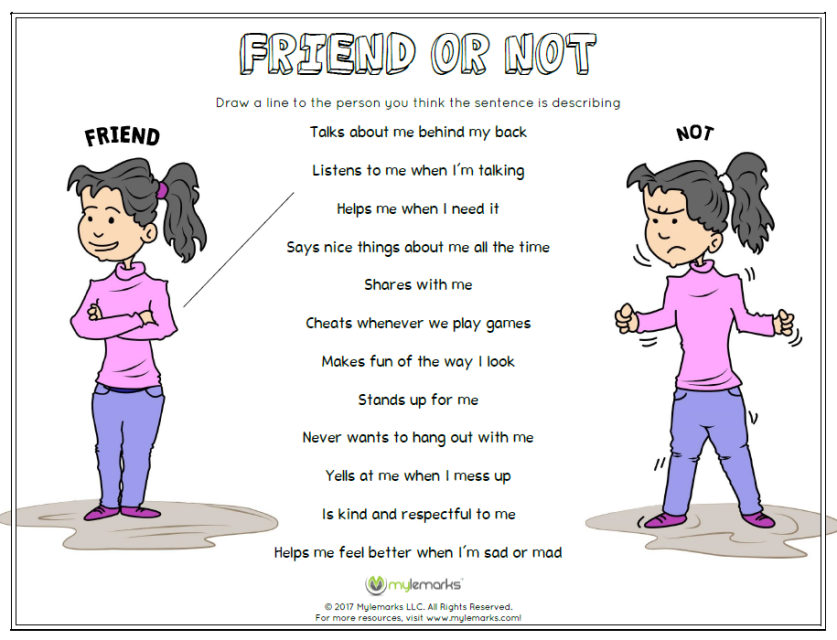 His parents brought him to see me at that time because Chance was becoming depressed. Most of his friends were headed to 4-year universities in the fall, yet Chance had not been accepted at any of his choices. He would have to do his time at the local community college, and if he got his act together and made good grades, perhaps he would be able to hook up with his buddies for his junior year in college. At 17 years old, Chance was finally getting the message and was beginning to regret his irresponsible ways. But he was going to have to pay the price and bear the consequences of his previous actions.
His parents brought him to see me at that time because Chance was becoming depressed. Most of his friends were headed to 4-year universities in the fall, yet Chance had not been accepted at any of his choices. He would have to do his time at the local community college, and if he got his act together and made good grades, perhaps he would be able to hook up with his buddies for his junior year in college. At 17 years old, Chance was finally getting the message and was beginning to regret his irresponsible ways. But he was going to have to pay the price and bear the consequences of his previous actions.
Think your child is just going to pick this up on her own? Willing to bet her lifelong happiness on it? That’s really what you’re doing if you’re not actively involved in teaching this lesson. Sure, she’ll run into some consequences with teachers and friends along the way, but there are so many more teachable moments available to you at home and during family activities. She doesn’t have to learn through pain. It can be done in a normal, everyday fashion — without the dreaded sit-down formal lecture.
It can be done in a normal, everyday fashion — without the dreaded sit-down formal lecture.
For instance:
- When your little one grabs her favorite cereal box off the shelf at the grocery store (behavior), say “no” and have her replace the box on the shelf (consequence) and move on. If she asks politely and it’s a reasonable request (behavior), say “yes” and have her put the cereal into the shopping cart (consequence).
- When your grade-schooler “forgets” about some homework until bedtime (behavior), set the alarm clock for 30 minutes earlier the next morning (consequence) so that she can get it done before school.
- If your middle schooler leaves her lunch money at home (behavior), don’t deliver it to her. She can either go hungry that day or mooch some food or cash from her friends (consequence).
- Your heavy-footed (behavior) 17-year-old can pay for her own speeding ticket or attend Saturday driving school for a few weeks (consequence) rather than you taking care of the bill for her.

The faster that kids learn the connection between what they do and the effect that it has upon others, the faster they begin to understand the idea of responsibility and outcome. They tend to think before acting, are less impulsive than their peers, and are often socially and academically successful. In addition, home life is much more comfortable as you find yourself having to nag and remind less, activities not only frustrating to you but very annoying to your child.
Moreover, the ultimate goal of guiding your child into a self-disciplined adult is achieved. Kids who are allowed and encouraged to learn the behavior-consequence connection evolve gracefully into responsible adults. Extra chores or obligations are handled appropriately and challenges are seen as just that — something to be accomplished, not problems to be avoided.
Kids doing choresgShutterstockRELATED: Revenge of the nerds? Cool kids at 13 often uncool at 23
Living the Law
It’s never too soon or too late. Realizing that brand-new babies begin to make the connection between what they do and what they get should solidify the idea that your 13-year-old daughter can understand the concept also. Don’t give up on her — even if she professes to “forget” or to “just not get it,” don’t buy into that. She’ll figure it out quickly if there is something in it for her — be it positive or negative.
Realizing that brand-new babies begin to make the connection between what they do and what they get should solidify the idea that your 13-year-old daughter can understand the concept also. Don’t give up on her — even if she professes to “forget” or to “just not get it,” don’t buy into that. She’ll figure it out quickly if there is something in it for her — be it positive or negative.
Take advantage of teachable moments. Although you don’t need to go on and on about the behavior-consequence connection, if you see an opportunity (and there’s probably at least one each day), bring it to your child’s attention. Now, that doesn’t mean that you’re constantly criticizing the kid. You’re just teaching her that making fun of her friend may lead to retaliation or at least a lessened friendship, or that getting a speeding ticket on her record will mean higher insurance premiums for years to come.
Watch out for feelings of entitlement. Be careful that your children do not take everything for granted — make them work for their allowances and privileges so that they see that effort leads to results! If they complain that it’s unfair that they have to work more than their friends, call a family meeting to discuss why you are making such a fuss about the behavior-consequence connection and why living it is so important to your family.
Be careful that your children do not take everything for granted — make them work for their allowances and privileges so that they see that effort leads to results! If they complain that it’s unfair that they have to work more than their friends, call a family meeting to discuss why you are making such a fuss about the behavior-consequence connection and why living it is so important to your family.
RELATED: See 19 of the best inspirational parenting tips to brighten your day
Check your own behavior. It’s really not a good idea to run a red light or to do one of those “rolling stops” at the stop sign. Even if you don’t get a ticket from a policeman, your kids may believe that there are two sets of rules out there — one for your family and one for the rest of the world. Remember, they are watching how you follow the rules and will most likely behave in a similar manner as they grow.
Don’t assume anything! Presuming that your kids will understand the connection just by attending school or playing with the neighborhood children is risky business.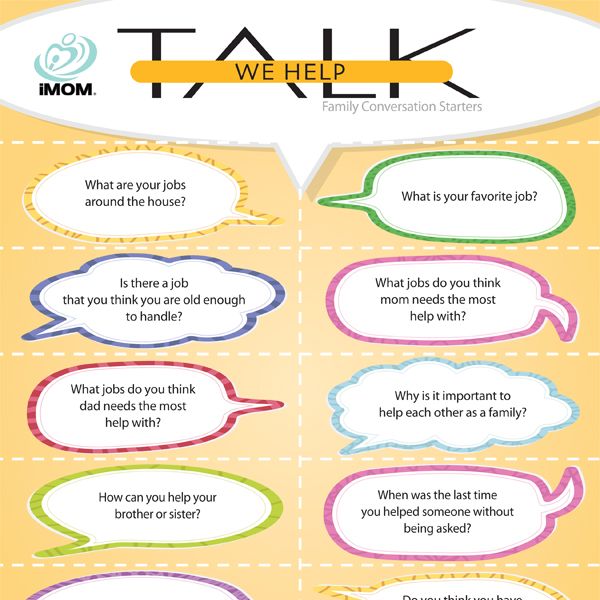 You may get lucky and have a mom or dad down the street who points out the behavior-consequence connection to your kid, but most will not. Folks tend to be reticent about disciplining other people’s children. So if you hear that your child acted up at a friend’s house or misbehaved in school, do something about it yourself. Sure, it may be double jeopardy, but I’d rather have the idea securely instilled in your kid than take the chance of it not becoming part of her personal value system.
You may get lucky and have a mom or dad down the street who points out the behavior-consequence connection to your kid, but most will not. Folks tend to be reticent about disciplining other people’s children. So if you hear that your child acted up at a friend’s house or misbehaved in school, do something about it yourself. Sure, it may be double jeopardy, but I’d rather have the idea securely instilled in your kid than take the chance of it not becoming part of her personal value system.
NEXT WEEK: The importance of establishing daily expectations
From “Laying Down the Law: The 25 Laws of Parenting to Keep Your Kids on Track, Out of Trouble, and (Pretty Much) Under Control,” by Dr. Ruth Peters. Copyright ©2002 by Dr. Ruth Peters. Excerpted by permission of Rodale. No part of this excerpt may be reproduced or reprinted without permission in writing from the publisher.
Dr. Peters is a clinical psychologist and regular contributor to TODAY. She is also the consultant psychologist for the Family Program at the Pritikin Longevity Center, a nutrition and exercise facility in Aventura, Florida. For more information you can visit her website at www.ruthpeters.com.
She is also the consultant psychologist for the Family Program at the Pritikin Longevity Center, a nutrition and exercise facility in Aventura, Florida. For more information you can visit her website at www.ruthpeters.com.
PLEASE NOTE: The information in this column should not be construed as providing specific psychological or medical advice, but rather to offer readers information to better understand the lives and health of themselves and their children. It is not intended to provide an alternative to professional treatment or to replace the services of a physician, psychiatrist or psychotherapist.
8 tips for parents if the child does not have a relationship with the teacher
School conflict is not something that can be ignored. Even to parents who are at school only on September 1, and look into the electronic diary for the first time on New Year's Eve. But a scandal could make things worse. It seems that you can’t do nothing, and you don’t want to harm. Here are some tips that will tell parents where to give up and where to run to the director.
Here are some tips that will tell parents where to give up and where to run to the director.
1. Talk to your child. But so that his truth is heard and understood
Of course, there are situations when there is no time for talking and you have to run not only to the director, but directly to the police. But usually in a conflict with a teacher it is not immediately clear who is to blame and what happened in general. Try to keep this conversation neutral - you want facts, not emotions. That is, if you, looking into the child’s eyes, ask in a tragic voice what this crazy chemist has arranged there again, then do not hesitate, the child will try to give such details so that his mother is satisfied. This is not a neutral conversation about the problem, so be aware. nine0003 Fragment of a painting by Fritz Zonderland
2. You must be on the side of the child. Even if you agree with the teacher
If the school is serious about something to your child, do not double the blow. Even if you agree with the accusations, never speak out against your child in public. Yes, and just agreeing (“Yes, yes, he is such a lazy person, we ourselves are moaning”) is a bad idea, although our parents used it. The child should know that in conflicts you are on his side. Because he is your child and you must protect him. Yes, you also have to educate, but when all are against one, it looks more like bullying than upbringing. nine0003
Even if you agree with the accusations, never speak out against your child in public. Yes, and just agreeing (“Yes, yes, he is such a lazy person, we ourselves are moaning”) is a bad idea, although our parents used it. The child should know that in conflicts you are on his side. Because he is your child and you must protect him. Yes, you also have to educate, but when all are against one, it looks more like bullying than upbringing. nine0003
3. Make sure you don't see evil intrigues where there aren't any
Yes, sometimes a teacher does something unfair. But behind the injustice is not necessarily a hidden dislike for your child. Admit it, you also don’t always understand which of the children ransacked the apartment during the couple of Saturday hours that you were sleeping, and you shout hotly at the wrong one or at all at once. Even for a cat. In general, if a teacher kicked your child out of class for chatting with a neighbor, this does not mean that yours is now forever an outcast, and the neighbor is a pet. nine0003 A fragment of a painting by Julius Hertz
nine0003 A fragment of a painting by Julius Hertz
4. Talk to the teacher face to face
Talking to the teacher is the most important point. At this stage, in no case should you connect anyone at all - neither other parents, nor the director. Remember everything you read about important negotiations: listen carefully, don't interrupt, don't pull a button, and all that. Both you and the teacher need this conversation to hear each other. Very often, by the way, after a conversation, the problem resolves. When, instead of an evil teacher who hates all the children in the world (and yours in general), you see an indifferent woman in front of you, who stays up late after work to talk - tadam - about your child, you don’t want a scandal anymore. nine0003
5. Do not argue with the teacher over trifles
It happens that the cause of the conflict is not at all what one should fight to the death for. If for you the controversial issue is quite a passing one, but for the teacher, on the contrary, it is very important - go towards the teacher.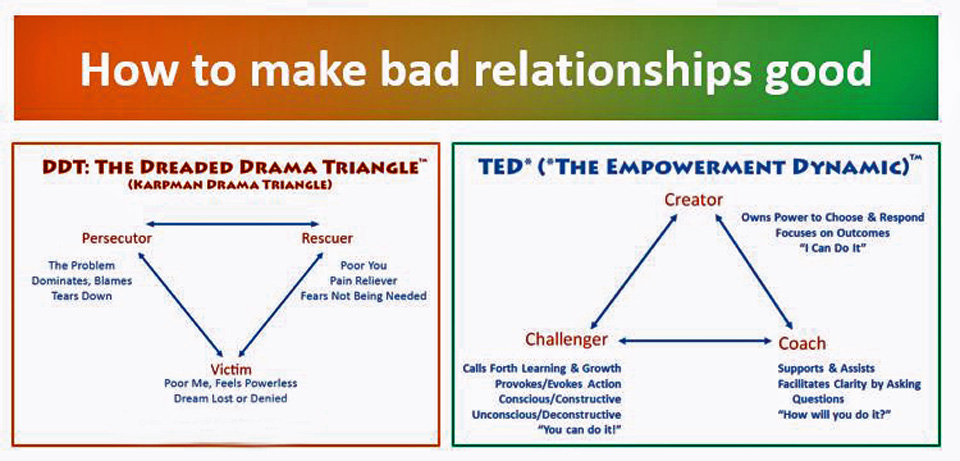 Bringing the child on time (yes, stop waking up five minutes before going out), regularly watching the electronic diary (finally find the password!), wrapping textbooks in the cover (stop putting off going to the store, it's already November) - all this can be done with little blood. And everyone will be happy. nine0003 A fragment of a painting by Jan Steen
Bringing the child on time (yes, stop waking up five minutes before going out), regularly watching the electronic diary (finally find the password!), wrapping textbooks in the cover (stop putting off going to the store, it's already November) - all this can be done with little blood. And everyone will be happy. nine0003 A fragment of a painting by Jan Steen
6. Don't argue about important issues either
It happens that you and your teacher disagree on a fundamental issue. Everyone knows that there are only two truly fundamental questions on which compromises are impossible: is it possible to breastfeed in public places and do or not do homework with a child. So, let's say a teacher requires you to sit at the lessons, and you think that this is not necessary and even harmful. To argue here is only to spoil each other's nerves. Better not even start. Agree, nod, promise, and at home do as you see fit. The child is yours, not a school child. nine0003
7. If things don't go well with the teacher, go to the director
If the conversation with the teacher did not lead you to mutual understanding or compromise and you see that you have reached a dead end, it's time to go to the director.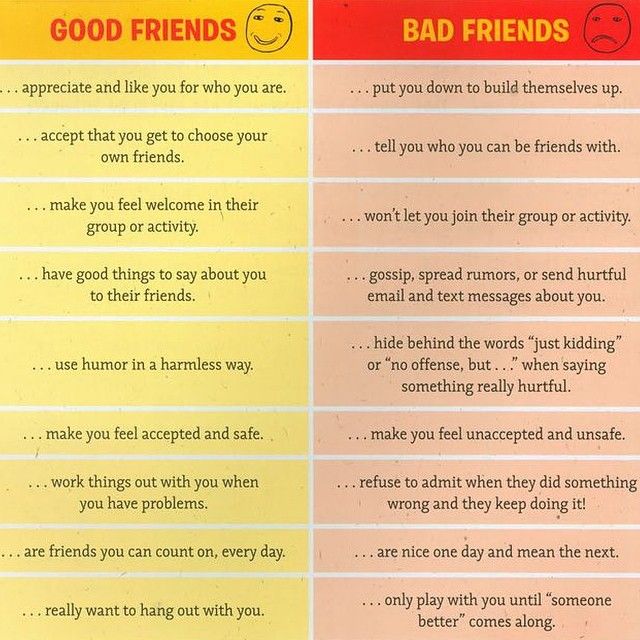 Sometimes the director can influence the position of the teacher, or you can agree with him to transfer the child to a parallel class. In general, as a rule, something can be done.
Sometimes the director can influence the position of the teacher, or you can agree with him to transfer the child to a parallel class. In general, as a rule, something can be done.
Here, if you are a principled fighter, you can express all your complaints about the teacher, school and education in general. By the way, this is not as useless as it seems. It is the parents who, according to the law, are the “customers of education”. So if you have something to say, say it. Most likely, you will be listened to carefully. If not, go to the next paragraph. nine0003 A fragment of a painting by Ralph Headley
8. Well, if that didn’t work, then still change schools (or homeschooling)
All this has a bad effect - change schools. It's not as difficult as it seems. Because school is a long time (11 years in fact) and a child should go there, if not with pleasure, then definitely not every day as if on an execution. In the end, you can switch to any other form of education that is available and suitable for you - family, for example. And then you will be in the place of the teacher. nine0003
And then you will be in the place of the teacher. nine0003
Fragment of a painting by Fritz Zonderland
How to teach a child the right attitude to grades
“Study for A!” - each of us heard this parting word from the elders when we first went to school. In many families, if not all, the word "loser" is an unflattering characterization. Is it worth taking grades so seriously and teaching the same to children? What attitude to the marks in the diary would be more correct? Tatyana Vasilkova, the founder of the AZ-BU-KA early development school, shares her point of view on these problems. nine0003
Tatyana Vasilkova, expert in early childhood development, founder of the AZ-BU-KA early development school, mother of two daughters
On different attitudes towards assessments
What is an assessment? This is a certain scale that reflects the depth of a child's knowledge in a particular subject.
While the child is a preschooler, the parent must answer for himself: how does he feel about grades? His attitude will be copied by the child. And mom or dad will most likely have the same opinion as their parents. After all, several generations have been brought up under the same educational system, in which five points is an excellent mark, two points is bad, or even terrible. nine0003
And mom or dad will most likely have the same opinion as their parents. After all, several generations have been brought up under the same educational system, in which five points is an excellent mark, two points is bad, or even terrible. nine0003
Many are accustomed to thinking like this: if a child gets an F, then this is very bad, and one should express one's displeasure about this and scold him. And someone thinks exactly the opposite. One mother I knew said: “I celebrate the deuces of a child, because this is rare!” One and the same situation can be presented as a drama or the collapse of parental hopes, or you can treat it like this mother.
It is important how you react for the first time to each assessment, from five to one. Sometimes it happens! What will you form with your reaction? Fear or motivation to fix? nine0003
How to talk to your child about grades
Let's not discuss B's and A's: usually good and excellent grades from children are a joy for parents. Although, of course, I know that in some families a four is not a high enough mark, and this is a separate topic for conversation. A more serious problem seems to me to be the sharply negative attitude of parents towards twos and threes, which is also transmitted to children.
Although, of course, I know that in some families a four is not a high enough mark, and this is a separate topic for conversation. A more serious problem seems to me to be the sharply negative attitude of parents towards twos and threes, which is also transmitted to children.
It is very important that you try to refrain from violent emotions when you open your diary. Evaluation is just a way to find out what the teacher thinks of the child as a student. A deuce is a child's problem, he has to fix it, and he will fix it only when he wants to. If a child has a two or three in his diary, calmly ask him simple but important questions. nine0003
"How do you feel about this?"
Perhaps the child himself is not happy with his assessment. Sympathize and don't scold. He gets upset when he gets a two and three for the first time: after all, the kid knows from the beginning of his studies that other results are expected from him.
Many people think: "I will scold him, and he will try harder.
" Will not be. How does the child see this situation? “I’m in trouble, but they scolded me for it. They don't like me." I am not exaggerating: the child's psyche is arranged in such a way that up to a certain age the child does not distinguish halftones in the emotional sphere. In his understanding, parents can either unconditionally love him or dislike him. Therefore, you should not raise your voice, shame the child or punish him. The motivation to study well is based on inspiration and desire, not fear of parental punishment. nine0003
If he is dissatisfied with a bad grade, he will strive to correct the situation.
"How could you help yourself and not get that grade?"
And here it does not matter what the child will answer and whether he will answer at all. In any case, he will think about how to prevent the situation from happening again next time.
"How can you change the situation?"
By asking about this, you are telling the child that he can influence the state of affairs. When a child believes in this, he builds a plan of action: to study this subject additionally, read books on the topic, ask the teacher how to correct the grade. The latter is especially important: when the teacher sees that the child is important and needs his subject, he treats the student with attention and helps. nine0003
When a child believes in this, he builds a plan of action: to study this subject additionally, read books on the topic, ask the teacher how to correct the grade. The latter is especially important: when the teacher sees that the child is important and needs his subject, he treats the student with attention and helps. nine0003
"Do you need my help?"
The child takes responsibility for learning, learns for his own sake. But he must know that he can always turn to you for help. And you will provide it. There is no need to take control over the performance: set time for classes, deprive them of cartoons and walks and reproach the child if he deviates from the planned plan.
Surely, on this path, the student will encounter difficulties, but, overcoming them, he will realize that he decides everything himself. He may not get a high mark, but he will learn to manage his time, set goals and go towards them. School will end, grades will lose their relevance, but the ability to set goals and achieve them will remain.
nine0003
The opposite situation is likely: the child will not want to change anything and will say that he does not need this object. Let him answer one more question.
"What do you want to be?"
Not everything that is studied at school will be useful in adult life, especially in the scope of the program. But all items are necessary and important. Let's say a child has a deuce in mathematics, and he answers your question that he wants to become an engineer or a pilot. Your task is to explain to him that without knowledge of mathematics this is impossible. Look for information about different scientists and engineers, tell your child their biography, help him understand why mathematics is important to him. nine0003
What if the child wants to become a musician and translator? How then to justify for him the need to study mathematics? You can return to this when the child is older and understands the importance of this science. In the meantime, it is better to switch all attention to what he is strong in, what he is interested in.
I emphasize: switch attention, and not abandon mathematics completely.
There are no such specialties where you need to understand only one discipline, and the rest are unimportant. If you have your own clinic, it is not enough to be a doctor. You have to be a bit of a lawyer, a bit of an economist, basic management and various business skills. Only in combination all this will help to achieve success. Agree with the child: "You work hard in your favorite subjects, but in those you fulfill the necessary minimum." nine0003
By asking these questions, you are teaching your child responsibility for their academic success. In order for the situation with assessments to change, he needs to realize this responsibility.
Help your child learn
You, too, are in some way responsible for how your child learns. 50 percent of his progress depends on how he does his homework: it is at home, with independent work, that the material is fixed. Does he do this work himself or do you take it upon yourself for some reason? Are there good conditions for studying? And there are a lot of them: this is the choice of a school, and a properly equipped workplace with good lighting, and the ability to make sure that no one interferes with the child. It is not uncommon for a child to get a deuce for an unfinished task - simply because he did not know what was given, or wrote it down incorrectly. Do not solve this problem for him, but suggest a solution: you can call classmates, for example. Does he not know where to get information for the report? Advise them to look at the Internet, the library, or leaf through the encyclopedia together, show them how to search for material. But don't write a report instead! nine0003
It is not uncommon for a child to get a deuce for an unfinished task - simply because he did not know what was given, or wrote it down incorrectly. Do not solve this problem for him, but suggest a solution: you can call classmates, for example. Does he not know where to get information for the report? Advise them to look at the Internet, the library, or leaf through the encyclopedia together, show them how to search for material. But don't write a report instead! nine0003
We do not know what knowledge will be in demand when the child becomes an adult. But it can be said for sure that in all eras there will be a demand for people who can learn, ask questions and know where to look for answers to them. It is in your power to help your child become that person.
Whatever happens to the child, you must be on his side. For example, he tells you: "Mom, I don't want to go to school tomorrow. We will have a difficult test, and I am not ready for it at all and I will not have time to learn anything. Let him stay at home, but with a strict condition: such situations are exceptional and should not occur more than once a year. You can also refuse, but with justification: for example, you were not convinced by his arguments, but yours are more weighty. nine0003
Let him stay at home, but with a strict condition: such situations are exceptional and should not occur more than once a year. You can also refuse, but with justification: for example, you were not convinced by his arguments, but yours are more weighty. nine0003
And again about twos
What makes us think that a child should not have bad grades? Does he have no right to make a mistake? Does he go to school for the numbers in his notebook and diary? Then this is not a question about education. Going for knowledge? Then, if the child tries, he has them anyway.
Recently my daughter came to me and said: “Mom, can you imagine, we have a girl at school who never got two!” Looking at her, I thought that perhaps she was a little jealous, and said: “I feel sorry for her, because this girl has not experienced the whole gamut of emotions.” Allow the child and yourself this emotion. And let it be infrequent. nine0003
Our children do not need all the knowledge they have at school.